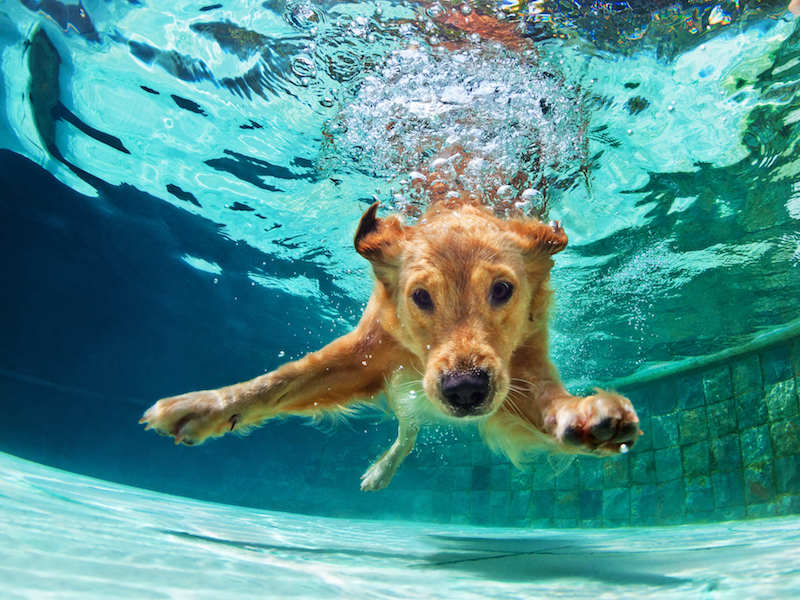
There are a lot of different things that can ruin the delicate technology that makes a hearing aid function the way it does, but not many have the impact of water. Hearing aids seem to self-destruct under extreme moisture conditions. Even if you already know that and take care to protect your investment from the shower, pool, or a good face washing, chances are you are missing the most common cause of water damage in hearing aids: humidity.
Moisture that you can’t see has the greatest chance of causing irreparable damage. It’s essential to educate yourself about why humidity damages hearing aids.
Let’s Talk About Humidity
Despite the fact that the word humidity is very common, what does it really mean? PBS defines humidity as water molecules in the air. When presented as a percentage, for example, the relative humidity is 40 percent today, it refers to the amount of water vapor in the air compared to what air could hold. The higher the percentage, the wetter everything feels.
Humans cool down their body by sweating so that makes us very sensitive to humidity. When humidity levels are high our sweat will not evaporate as fast. Electronics are also susceptible to humidity and that is why it has such a detrimental effect on hearing aids.
Why Electronics Have a Problem with Humidity
Too high or, too low, humidity can impact your hearing aids. When it’s too damp, the intricate electronics will accumulate condensation. When it’s too dry things become more brittle.
Hearing aids depend heavily on internal electronics to function. A sophisticated audio processing chip manages noise levels in a modern hearing aid. Because of this, you get amazing features like:
- Noise reduction
- Anti-feedback
- Targeted listening programs
- Digital sound streaming
High humidity causes moisture to accumulate in the hearing aids damaging that chip. Batteries get wrecked and you get corrosion of elements inside of the case. It’s the same as dropping your hearing aid in a pool of water.
Dealing With Humidity
If you are looking at hearing aids, try to find products that are water-resistant. Having this feature doesn’t mean you can go swimming with your hearing aids in your ear, but it does give some protection against humidity and other weather-related concerns such as getting caught in an unexpected rainstorm or even sweat when you work out.
When it’s very humid try to reduce indoor water vapor by using a dehumidifier. It’s not just your hearing aid that will benefit, there are health benefits, and other electronics in your house will also be protected. Dust mites, mildew, and mold thrive in moist environments so a dehumidifier will improve the quality of breathing as well. Although a house or room dehumidifier will help protect your hearing aids, it’s not enough. You will need to take other steps at the same time.
Look for the dehumidifier made for hearing aids. They come at all costs levels. Silica gel crystals in a drying kit are used to protect electronics. Moisture is eliminated by putting the hearing aids into the dehumidifier for a couple of hours. Drying your hearing aids as you sleep at night can be done using specially designed storage containers. If it is very humid and you have no other way, uncooked rice can reduce moisture.
Don’t forget to leave the battery door open when you store your device. When you expose the battery and inner elements to air by leaving the door open, condensation can evaporate by itself. Do this all year round, not just in the summer months.
Always store your hearing aids in a cool, dry place. On the table in the sun, in the glove compartment, or in a hot room are examples of where not to store your hearing aids.
Thinking Past Humidity
Damage can be caused by other types of wetness. Take precautions to protect them from other kinds of wet such as:
- Don’t touch your hearing aids with hands that are still moist from lotion.
- Leave your hearing aids in a safe place before you go swimming.
- Wear a sweatband when exercising. If you are wearing your hearing aid then it’s a good idea in general. Later that sweat will cause problems.
- Check surfaces before you put your hearing aid down. You don’t want to place it in a wet spot left by a glass or coffee cup.
Treat your hearing like the valuable asset that it is. Keep in mind how moisture can damage your hearing aids and make sure to prevent water from getting in them. If your hearing aid already has water damage make an appointment for service with a hearing aid specialist.
